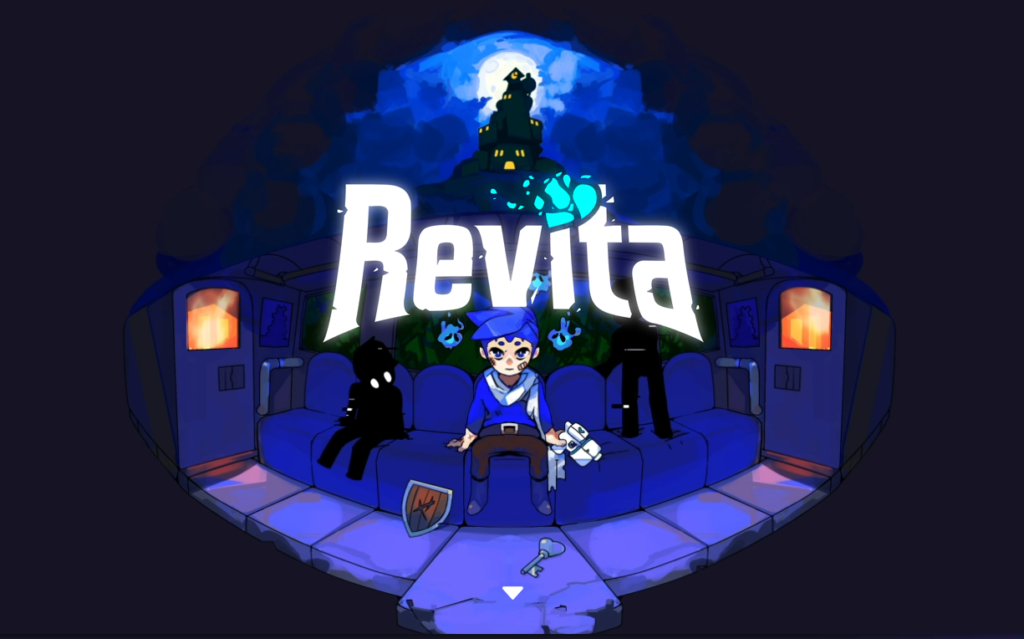
Revita from one-man German developer BenStar and publisher Dear Villagers is rather fast-paced. Not your normal ‘the screen is a bit busy’ fast-paced but instead, you can blow through an entire loop in this pixel art roguelite in less than 3 minutes if you’re not paying attention. Normally, these types of titles are a bit more sedentary, with even active games like Dead Cells building winding corridors and tunnels that might take a half hour or more in a run. Not Revita though.
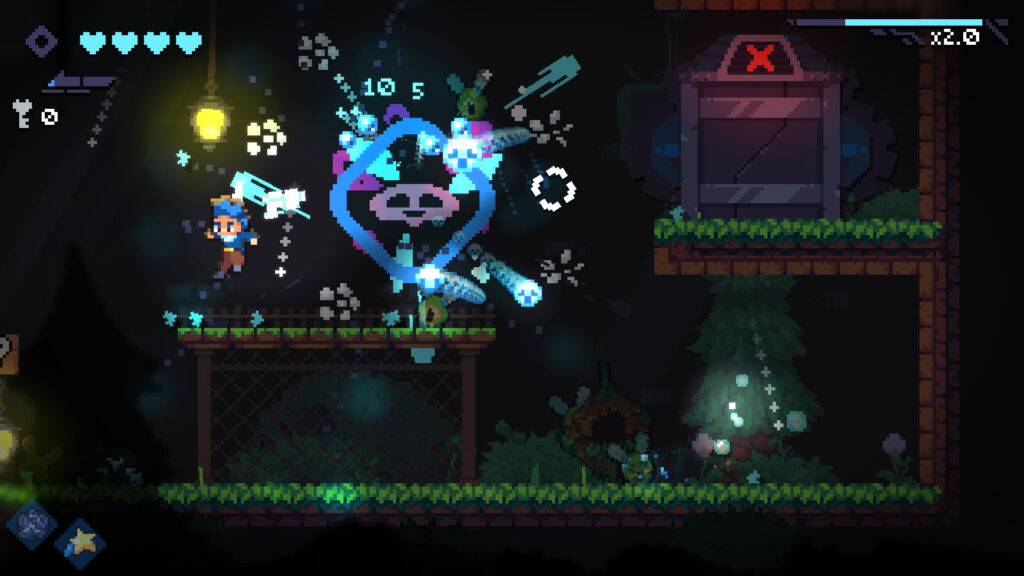
In Revita, you play a boy who is climbing up a clock tower filled with monsters. It’s not entirely clear what’s happening or why, but you find yourself on a subway car that has taken you to a station where you appear to be tracking down your lost memories. Every time you die, you return to the train station and start anew. This in and of itself isn’t unique to the roguelite genre, but the mechanics of Revita definitely are.
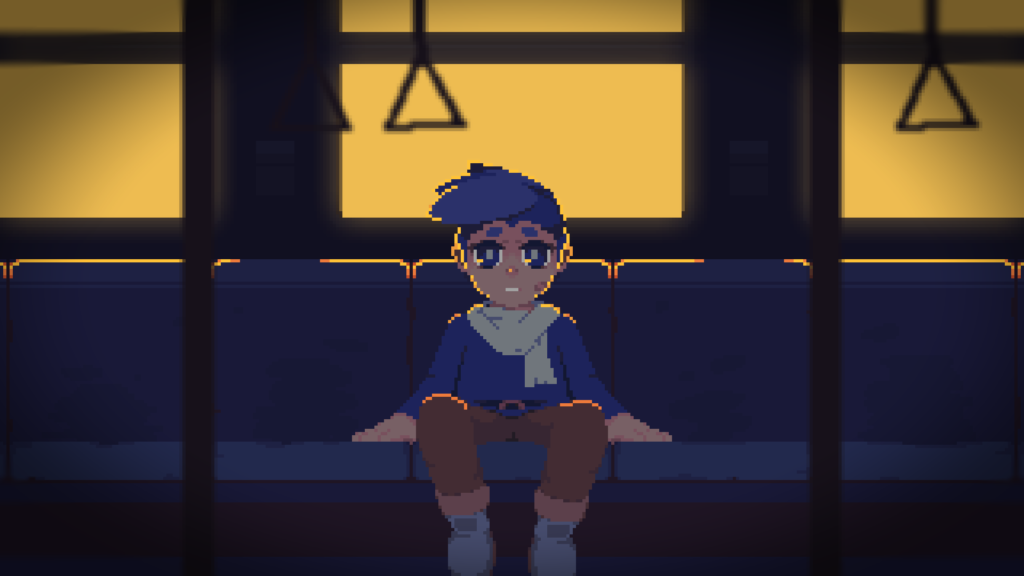
Once you enter the tower, you are put into a series of random rooms. The first thing you’ll notice is that the rooms are incredibly small. Significantly smaller than the average game of this type in fact. Then the enemies spawn and attack. Slaughter them all and you automatically collect their spirits, then can move on to the next floor of the tower. Combat is a bit different than you might expect though. Aiming your gun is mapped to the right stick as this is a twin stick action game, but it is a bit inaccurate and it’s often hard to hit enemies in the tight quarters. Because of the twin stick layout, it’s impossible to use the face buttons for firing or other actions, so everything is mapped to the shoulder buttons. The right trigger fires, the left dashes, and the left bumper jumps. It’s an awkward layout to get used to, especially since Revita requires a fair amount of precision and you’re in close quarters with the enemies. Luckily, you can literally dash through enemies and bullets, cling to walls, and even dash in the air.
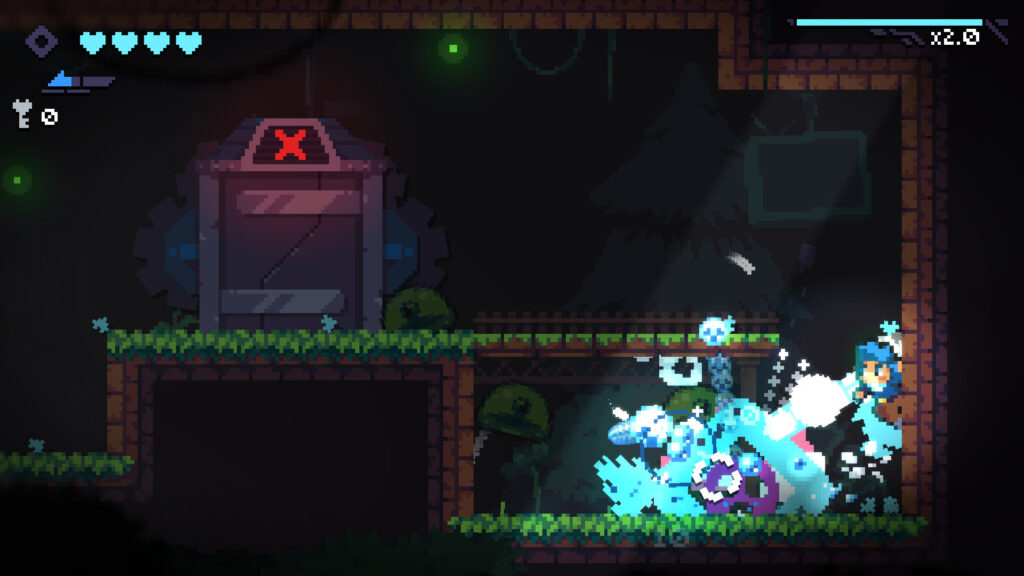
If you’re thinking combat sounds a bit frantic, it definitely is. The dash attack keeps you from getting cornered, but there are enemies aplenty with environmental hazards like spikes and poison gas to boot. And you have 4 hearts to start. Take a few hits, and you’re simply dead. It’s pretty challenging to make it all the way through the levels of each tower concurrently with life that low, much less defeat a boss! Fortunately, there’s a focus button that allows you to recharge your life if you kill enough enemies. Sadly, it takes quite a long time to charge it up and each segment only charges half a bar.
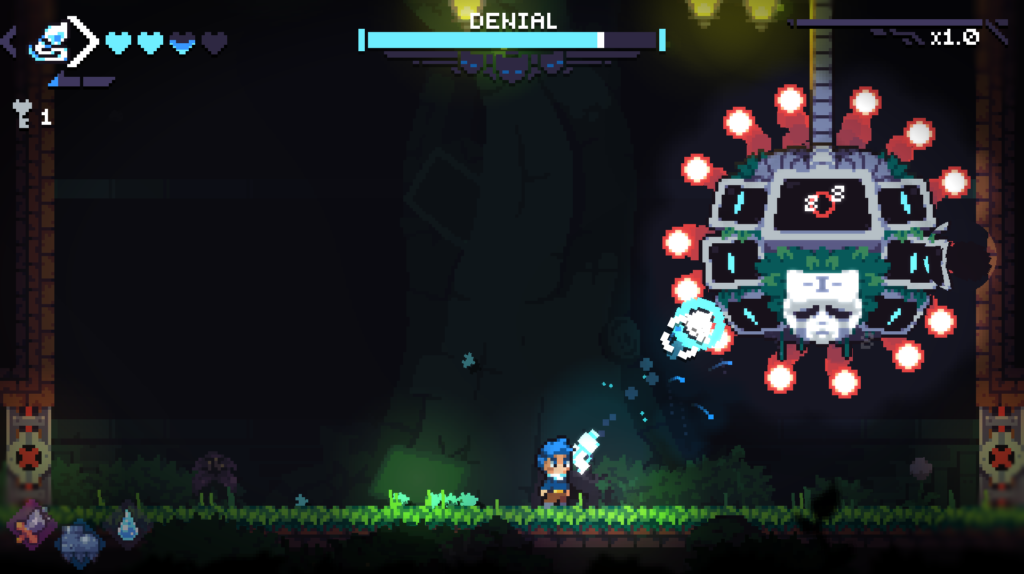
As you progress, certain areas will have treasure chests that you can unlock with keys once the enemies are defeated, others will have stores. But the currency isn’t the souls of the dead enemies you pick up. Instead it’s your life itself. Remember that measly four hearts? It’s up to you to decide whether you want to sacrifice one (or more… *shudder*) to a goddess statue or open a treasure chest by burning one of them for a random reward. That’s right, random. It might just end up being a 5% damage boost or an extra hit. It might be completely useless. You just don’t know. But no risk, no reward in Revita, which is the key mechanic that makes the game interesting. Should you sacrifice half a heart for a power boost? Or a whole heart to increase your firing rate by 10%? Will you be able to do enough damage to defeat a boss if you don’t? It’s all up in the air and if you get the wrong rooms, you won’t be able to focus fast enough to regain those hearts.
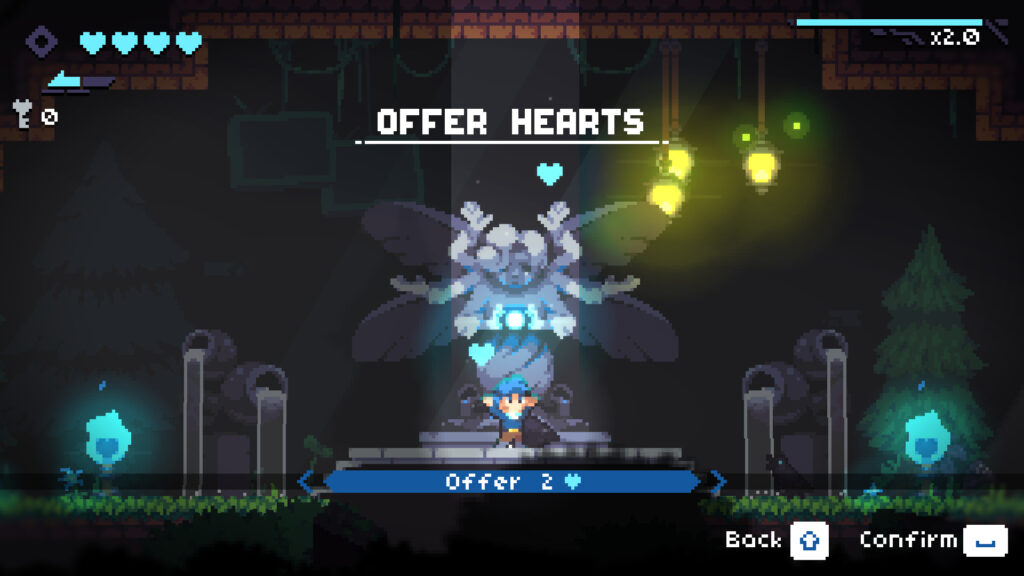
Needless to say, this is a fairly stressful decision-making process. And chances are good that regardless, you’ll probably die a lot, and pretty fast too. Perhaps some people will really take to the controls but it often seemed like gameplay consisted of fighting the targeting system while trying vainly to coordinate jumping and dashing with the same fingers and then running into enemy fire and dying. That might be because Revita is an early access game though, and only the first three worlds are available so far. For early access, the polish level is pretty high, but the controls definitely don’t feel intuitive, especially regarding dash and jump coordination and targeting.
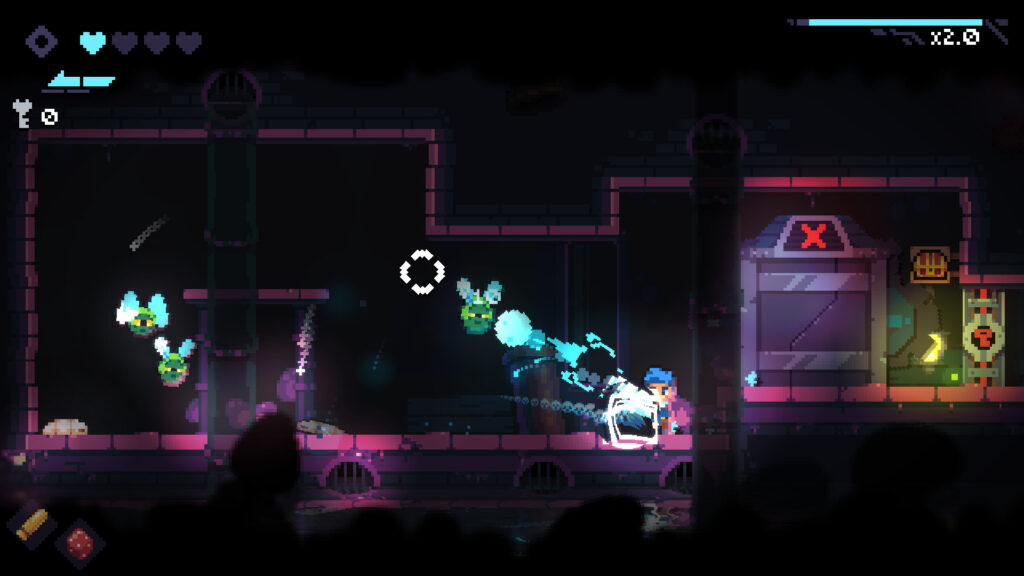
Revita’s large, chunky pixels are great, the overall movement and collision detection is solid and the load times are almost instantaneous. It’s nice to be able to whip through gameplay without waiting interminably for a change. In fact, the entirety of the graphic design for Revita is quite nice with interesting enemies, solid backgrounds, easily discernible platforms, and unique bosses. The music is pretty enjoyable too and sound effects are well-done. It’s just that the controls are so darn weird that it’s tough to play. And if you are down to your last heart, stress levels rise fast because death means fighting not just back through the last tower you finished, but all the towers. Definitely a hassle in this case with the health/currency mechanic.
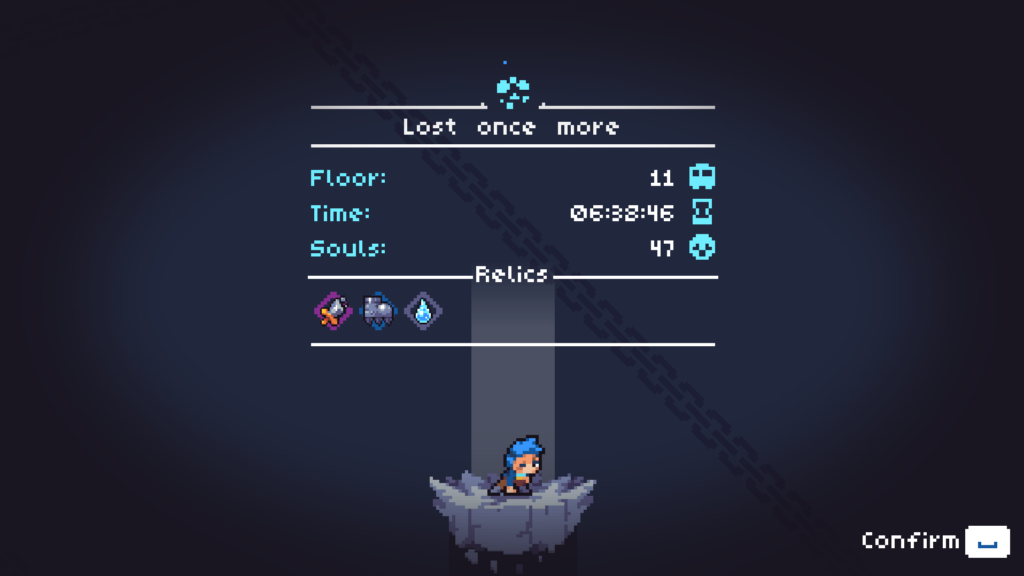
Speaking of currency, there are actually two types in Revita. One is health, the other is souls. Kill an enemy, collect some souls. When you die, the souls are refined into further currency which you can then take back to the train station and spend on both upgrades and cosmetic improvements. Unfortunately, most of the cosmetics aren’t particularly useful and there are only a handful of upgrades so this mechanic feels fairly wasted, especially early on. There are some other neat things, like weird sub-weapons, strange monsters that can give you items that will help you, and a lot more hidden stuff, but it’ll take plenty of runs to find all the goodies and you never have any clue what’s coming next! Be sure to check back in at the station to talk to the denizens or you’ll definitely miss out!
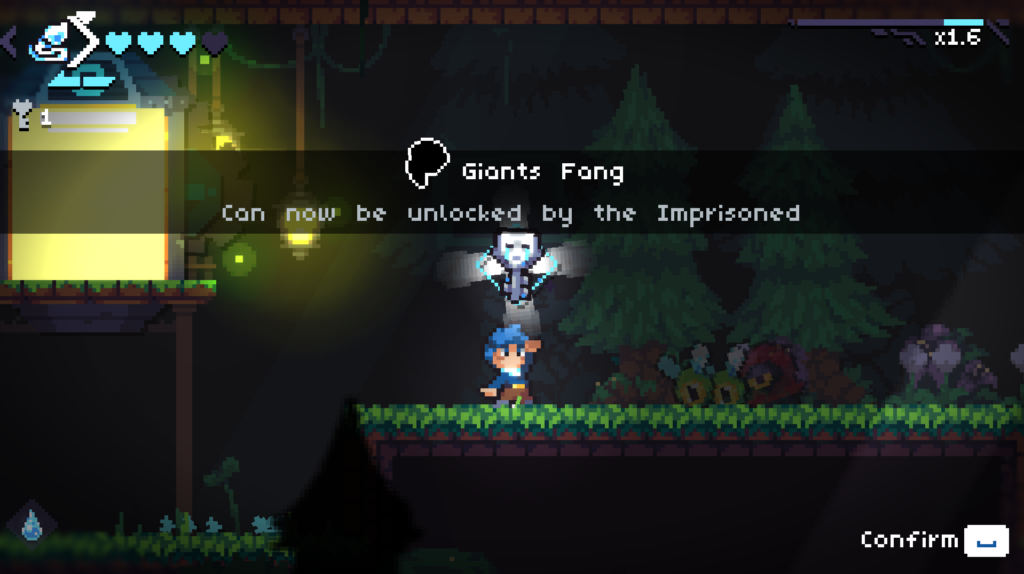
So what’s the verdict? Revita is a neat game with fast gameplay, cool pixel graphics, and excellent overall gameplay design. However, the controls are challenging to master, the rooms start to feel a bit stale quickly (especially if you die a lot *cough*), and the targeting is more than a bit frustrating. As an early access title, this is a solid start, but with no firm 1.0 release date available, it’s hard to say how much the game will change. Perhaps these things will be tweaked, perhaps not. At $15, it’s a crapshoot whether you’ll fall in love with Revita or not, but it’s a solid title and will probably appeal to a fair percentage of the roguelite audience. Is it an absolute must-buy? No. But it’s pretty darn good and has a lot of potential. BenStar probably has a solid release on their hands and it will be interesting to see what they do with it in the near future!
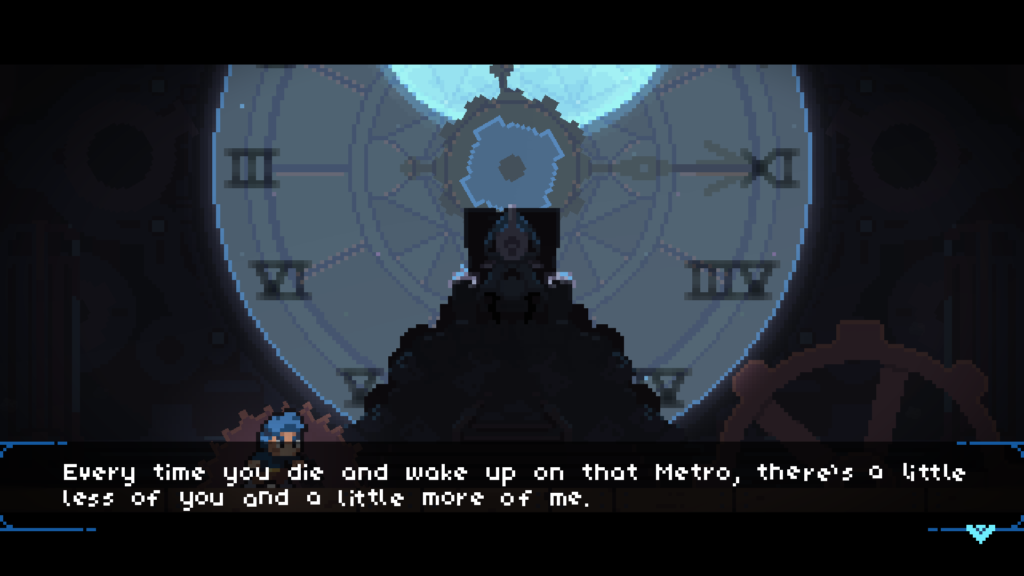
This review was based on a digital copy of Revita provided by the publisher. It was played on an I7-8700K with 16 GB of DDR4-3000 RAM, an Asus GeForce GTX 1080 ROG Strix graphics card, and an Xbox One controller connected wirelessly. Revita is currently a Steam Early Access exclusive. Some screenshots are from press releases as the game is too damn fast for me to get good pics without dying!!

